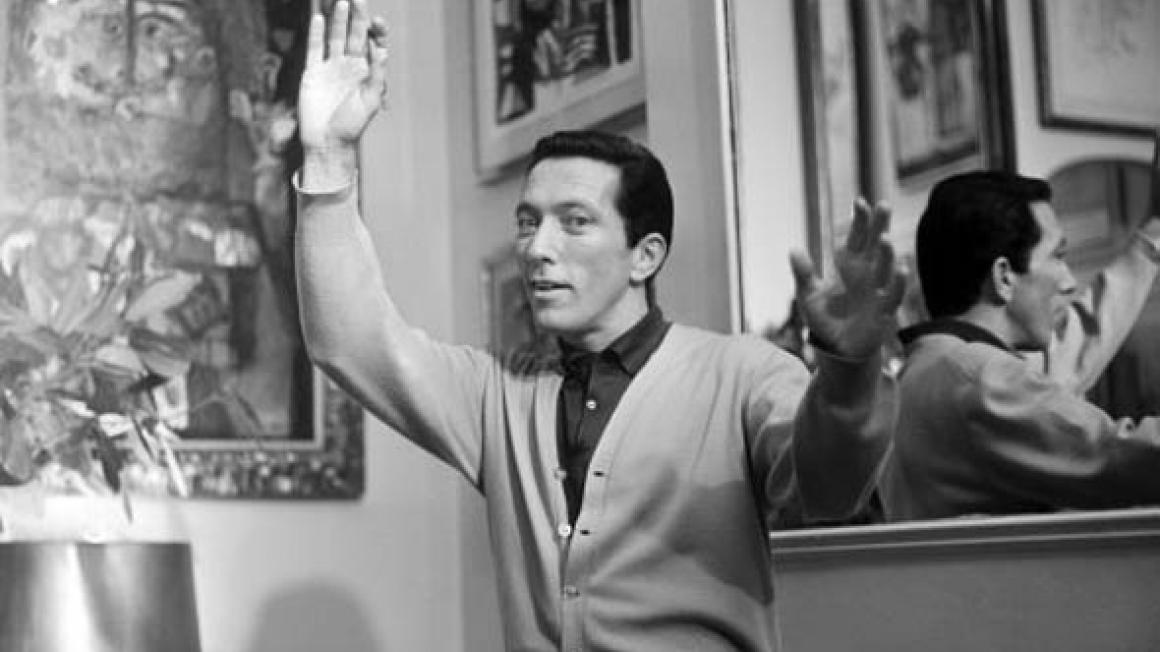The Daily: September 27
Tributes have flooded in for Andy Williams, who died at his home in Missouri on Tuesday. The singer, best known for his Oscar winning version of 'Moon River' which featured in the film 'Breakfast at Tiffany's', was diagnosed with bladder cancer a year ago. The star's popularity peaked in the 1960's with shows such as Emmy winning 'The Andy Williams Show' and a string of hits that saw him dubbed by President Ronald Reagan as "a national treasure". Since the 1990's Williams has run the Moon River Theatre in his home town and continued to play live into his 80's saying that "perhaps two hours on stage is a medicine everyone should have". Today fellow singer Tony Christie was one of countless stars to pay tribute to Williams, describing him as a "lovely man, very gentle" who was "up there with Sinatra". Lyricist Don Black, who wrote the song 'Born Free' which was rerecorded by Williams, said he was the "ultimate professional". Following his diagnosis last November Williams remained positive, asserting that cancer was "no longer a death sentence" however in July he was released from hospital to spend his last weeks with his family.
J.K Rowling's first adult novel hits bookshops
Bookshops across the country have opened early this morning so that fans could get hold of J.K Rowling's highly anticipated 'The Casual Vacancy'. The hardback had already become a bestseller though presale but books are expected to fly off the shelves today. 'The Casual Vacancy' is Rowling's first adult novel and initial reviews suggest that it couldn't be more different from the Potter series. Set in middle England, the novel tackles subjects such as rape, prostitution, drug addiction and depression, with a distinctly non magical ending. However when asked if she felt a duty to write something that was appropriate for her multitude of young fans, Rowling coolly replied "there is no part of me that feels I represented myself as your children's babysitter or teacher...I am a writer and I shall write what I want".
Cambridge Librarian finds forgotten Darwin fungus
A collection of one hundred and eighty year old fungus from Darwin's Beagle voyage has been found, still wrapped in newspaper, by a Cambridge Librarian. The fungus and seaweed was discovered when Chief Technician Christine Bartram was going through a box labelled in 1950 'to be sorted'. The specimens were bought back to the UK by Darwin when he returned from his Beagle voyage to South America in 1833 and were sent to Cambridge's Herbarium where they were stored and forgotten. Hundreds of new and unique specimens have been unearthed by Cambridge experts during the relocation of the Herbarium to a bigger space, and this latest find is just one of many exciting samples to have been rediscovered.
Stolen Benjamin Franklin bust found
A rare three million dollar bust of Benjamin Franklin has been returned to its grateful owners, a month after it was stolen. The sculpture, crafted by Jean-Antoine Houdon in 1778, is seventy one centimetres tall and weighs eleven kilograms. Remarkably the bust was stolen by Andrea Lawson, a member of the owner's cleaning staff, who was arrested whilst getting off a bus with the prized bust in her duffel bag. Lawson has been charged with fraud, theft and interstate transport of stolen property and is due in court for a bail hearing on Wednesday.
Sumatra earthquakes could signal the creation of a new tectonic plate boundary
The series of large earthquakes that rocked Sumatra in April could signal a breakup of the Indian Ocean tectonic plate and the formation of a new plate boundary. Scientists in this week's 'Nature Journal' said that the series of earthquakes suggest that major changes are taking place in the ocean floor that could see the Indo-Australian plate split in two. Despite the violent tremors, this change is unlikely to be completed for millions of years according to Dr Matthias Delescluse from the Ecole Normale Superieure in Paris. Speaking of the change, he said "This is a process that probably started eight to 10 million years ago, so you can imagine how much longer it will take until we get a classic boundary".


